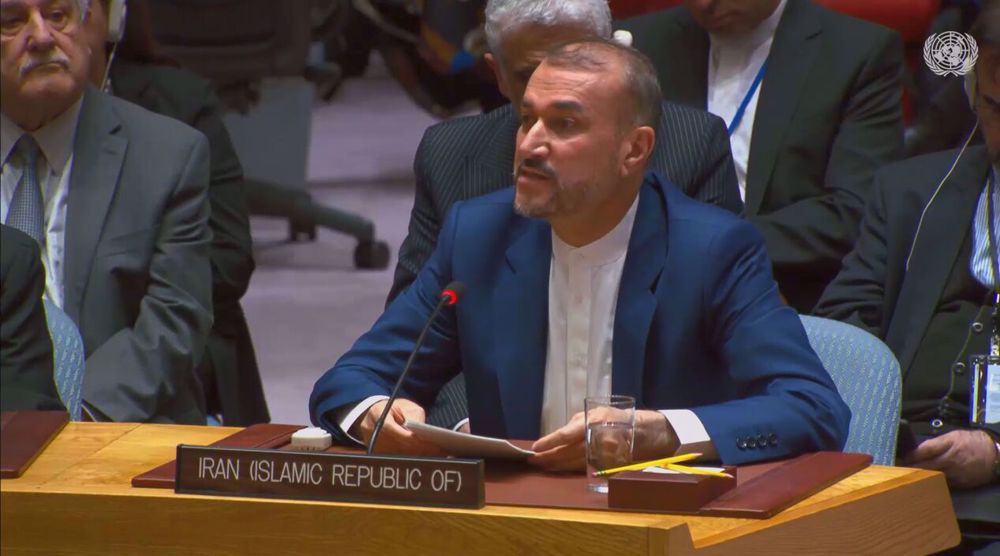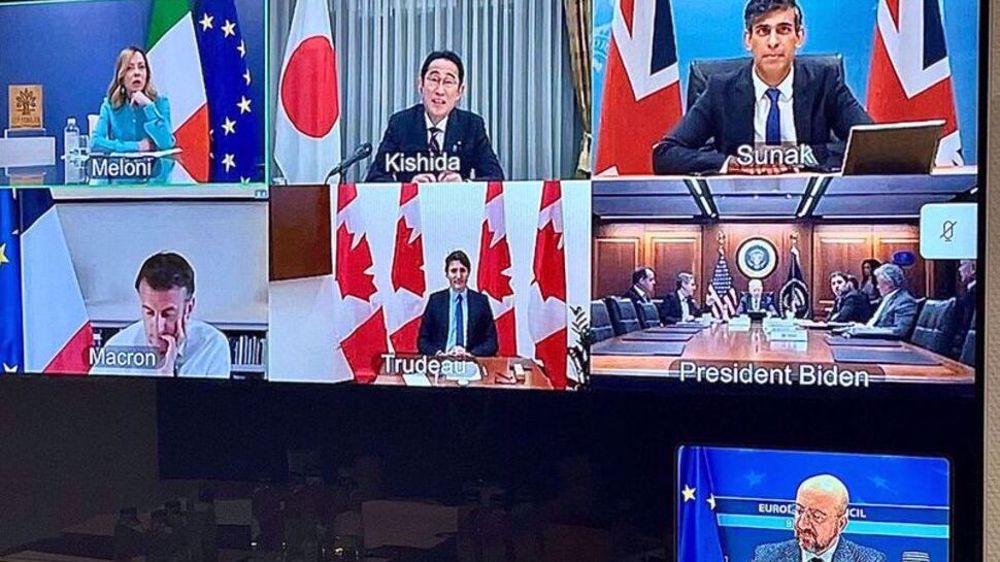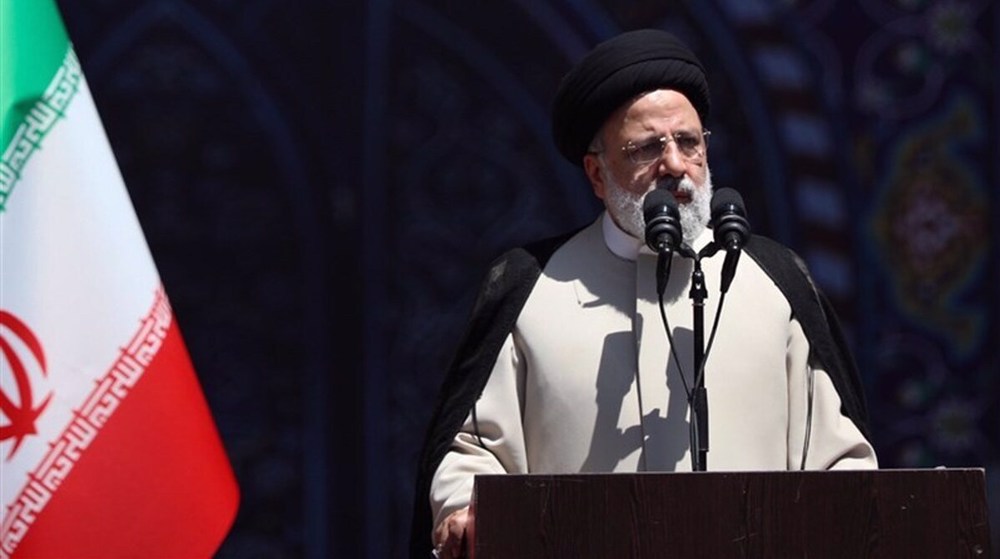‘Europe holding nuclear deal hostage to corner Iran’
Here is a rough reproduction of an editorial by Mohammad Safari, editor-in-chief of Iran’s Persian-lanuage Siasat-e-Rooz (Daily Politics) newspaper.
The European Union has been holding the Iran nuclear deal hostage so that it can press Tehran into meeting its other unrelated demands.
Even though the EU has been portraying itself as a supporter and defender of the Joint Comprehensive Plan of Action (JCPOA) -- the official title for the nuclear agreement -- it has failed to adopt any practical step to that effect. It would thus be inexpedient to have the Iranian people pay the price for keeping the JCPOA alive -- as is desired by its proponents inside and outside the Iranian administration.
It is crystal clear that Europe is seeking to use the nuclear deal as leverage to corner Iran into fulfilling certain EU-US joint demands.
In case Europe demonstrated its goodwill by partially fulfilling its obligations under the pact following the US withdrawal, Iran’s continued commitment to and its one-sided implementation of the deal's terms would have been more justifiable. It is, however, a strategic mistake to defend an agreement, the only beneficiary of which is the other party thanks to Iran’s full compliance.
That Europe’s planned launch of the so-called Special Purpose Vehicle (SPV) would guarantee Iran’s interests is a wrong assumption. The Europeans have designed the financial mechanism in a way that would only partially meet Iran’s food and medical requirements, in return for oil. Such a mechanism, if implemented, would helplessly place Iran’s hand under a European cleaver.
Federica Mogherini, the EU’s foreign policy chief and special representative in nuclear negotiations with Iran, has said, “Our strong support for the implementation of the JCPOA doesn’t mean we turn a blind eye for other issues.” This stance carries the message that the JCPOA is in Europe’s captivity.

As far as America is concerned, this is a clear-cut case of insolently breaching an international agreement. Nevertheless, Europe has all along presented itself as a committed party and backed the deal in words, but it has failed to follow through with actions that back them up.
Europe and the US share the goal of using the JCPOA as a tool to drag Iran to the negotiating table on topics other than its nuclear program, including the country’s missile capability, its role in regional states such as Syria and Yemen as well as human rights and other issues.
In that regard, Mogherini has said, “We believe that, on the basis of the full and continued implementation of the JCPOA, through dialogue, we could continue to address other issues that are of serious concern for us, including the ballistic missiles, including Syria, including other issues that we want and we are already discussing with Iran.”
The issues she pointed out pertain to the Islamic Republic’s domestic affairs and national security. Will the European states, which are in possession of nuclear and unconventional arms, be willing to destroy their arsenals if the Islamic Republic of Iran requires them to? Iran’s missile capability acts as a powerful deterrent against threats posed by enemies including the US, Israel and even certain European countries.
The real objective is to weaken the Islamic Republic and its regional standing which is owed to the country's positive influence and resistance in the face of excessive enemy demands. Iran has succeeded in stopping the advance of the Wahhabi-Takfiri terror groups created by the US and the Israeli and Saudi regimes. It is exactly for this role that Europe is indebted to Iran. If it weren't for the Islamic Republic's fierce fight against such groups, Europe would have become the target of a massive storm of terrorist attacks.
It is now Iran that should take Europe to task for failing to honor its obligations. Whereas Iran has remained committed to the nuclear deal, the opposite side has both violated the agreement and has even slapped more sanctions on Tehran.
Iran's interests cannot be guaranteed under Europe’s proposals to save the JCPOA. A deadline needs to be set for the EU to act on its commitments. Iran should only stay in the deal if Europe meets that deadline and agrees to respect its obligations. Otherwise, the only viable solution will be to withdraw from a deal that has been imposed on the country.
Even if Iran enters negotiations and reaches deals on issues outlined by Mogherini, there is no guarantee that the US and Europe will end their hostilities and lift the economic sanctions. The fate of the deal, struck more than two years ago over Iran’s peaceful nuclear work, bears testimony to that fact. The JCPOA, whose future is now hanging in the balance, brought Iran no results other than certain limitations on its nuclear activities.
If the US and Europe had kept up their end of the bargain, we could have approached the issue of negotiation with a more positive attitude. But as we can witness today, Europe is exploiting the JCPOA as leverage against Iran. The Europeans have even conditioned the deal's survival on Iran becoming a member of the Financial Action Task Force (FATF). And Tehran seems to be moving towards joining the FATF -- a move that will impose further limitations on the country.
US vetoes Palestinian request for full UN membership
Iran sufficed to strike only part of Israel’s military positions: FM to UN chief
IRGC: Israel’s Dimnoa nuclear reactor not among Op. True Promise’s targets
VIDEO | West Asia awakens
'Stop any further Israeli adventurism,' Iran FM tells Security Council
Google fires 28 employees for protesting military deal with Israel
Burkina Faso expels three French diplomats over ‘subversive activities’
Iran slams G7 statement, vows no iota of doubt to respond to aggression











 This makes it easy to access the Press TV website
This makes it easy to access the Press TV website